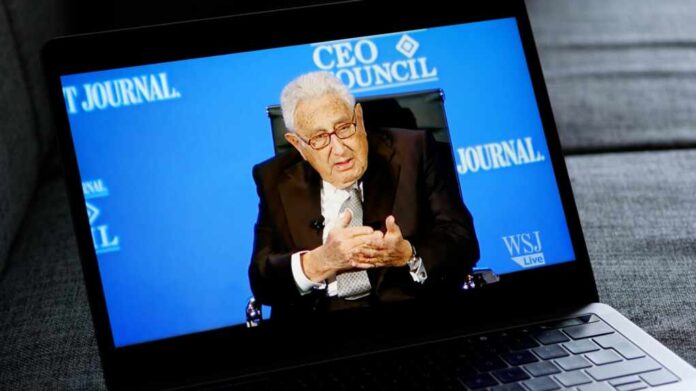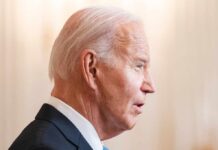
Former Secretary of State and National Security Advisor Henry Kissinger died in his Connecticut home Wednesday at the age of 100.
Kissinger Associates, the consulting firm of the former state secretary, announced the death of the 100-year-old statesman and diplomat in a statement. The firm did not name a cause of death in the statement. Kissinger leaves behind his wife of nearly 50 years, Nancy Maginnes. Together, they had two children and five grandchildren.
Henry Kissinger was a towering world figure, a strategic thinker and easily one of the most influential Secretaries of State in American history. He never stopped learning, never stopped thinking and never stopped looking for answers to the world’s hard problems. pic.twitter.com/6WxClVkDFt
— Condoleezza Rice (@CondoleezzaRice) November 30, 2023
The family has asked instead of flowers for well-wishers to make a donation to the Animal Medical Center in New York or the Henry A. Kissinger Center for Global Affairs.
A Democrat, Kissinger was the last surviving member of the White House cabinet of Republican President Richard Nixon, the 37th president of the United States from 1969 through 1974. He remained Secretary of State under President Gerald R. Ford after Nixon resigned from office in 1974 following an impeachment by Congress over the events of the Watergate scandal.
Kissinger was best known for his diplomacy and leadership in Washington during the Vietnam War. For his efforts to end U.S. involvement in the Vietnam War, he received a Nobel Peace Prize in 1973. The Nobel Committee also lauded Kissinger for ending the Yom Kippur war by leading peace talks between Arab states and Israel.
President Ford awarded Kissinger with the Presidential Medal of Freedom in 1977. He praised the state secretary for wielding “America’s great power with wisdom and compassion in the service of peace.” The U.S. elder statesman was the only individual in history to hold the positions of White House national security advisor and state secretary simultaneously.
Mr. Kissinger ended his public career officially in 1977. He went on to write over a dozen books and started the geopolitical consulting firm Kissinger Associates.
At the very end of his life, Henry Kissinger finally got something right:
"It was a serious mistake to let in so many people with completely different cultures, religions and concepts" pic.twitter.com/TEdCVhSsnd
— End Wokeness (@EndWokeness) November 30, 2023
In his last television interview, Kissinger told Politico, “It was a grave mistake to let in so many people of totally different cultural and religious and [conceptual backgrounds] because it creates a pressure group inside each country that does that.”


















